Gateway House launches first Quad Economy and Technology Task Force
The Task Force led by Gateway House will study economic and technological cooperation between the four like-minded democracies in the Indo-Pacific.
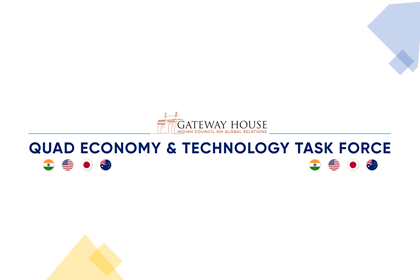 Courtesy: Gateway House
Courtesy: Gateway House
The Task Force led by Gateway House will study economic and technological cooperation between the four like-minded democracies in the Indo-Pacific.
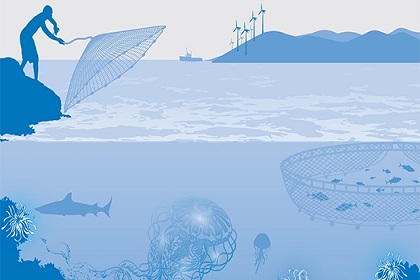 Courtesy: Common Wealth
Courtesy: Common Wealth
The Indian Ocean Region (IOR) presents a unique opportunity to develop a Blue Economy, with security, sustainability and business profitability as its three pillars. An IOR Defence Ministers' Conclave held on 4 February provided a platform to discuss regional cooperation, linking development with defence, and emphasized India's pivotal position within the IOR.
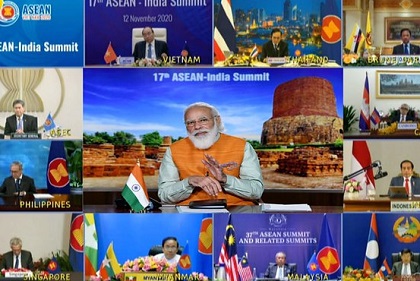 Courtesy: MEA/Flickr
Courtesy: MEA/Flickr
The recently concluded ASEAN and EAS Summit saw Prime Minister Modi highlighting the Indo-Pacific region. That’s because a cohesive, responsive and prosperous ASEAN is seen as vital to India's Indo-Pacific Vision and to Security And Growth for All in the Region (SAGAR). India’s decision to opt out of RCEP, even when all ASEAN member countries are signatories to that agreement, will mark a shift in how India enhances bilateral engagements with ASEAN nations with greater strategic intent.
 Courtesy: Shutterstock/Gateway House
Courtesy: Shutterstock/Gateway House
Now that the India-U.S. 2+2 meeting has ended, Indian officials are preparing for a hectic season of summiteering in November, from the SCO to the BRICS and the G20. All will give India global attention, and help the country prepare its positioning at home and abroad.
The Quad, a grouping of Indo-Pacific democracies, is more relevant than ever. It must now operationalise not just the military exchanges but also formalise economic and technology partnerships that will undergird a meaningful new multilateral, provide it with resilience and appeal in the Indo-Pacific region. In this Webcast, co-hosted by Gateway House and Konrad-Adenauer-Stiftung, the panelists discuss the need to reform Quad, which hosts the four leading global voices, in order for it to become the magnet that attracts like-minded nations, small and big cutting across continents and oceans to converge on the new world order realities.
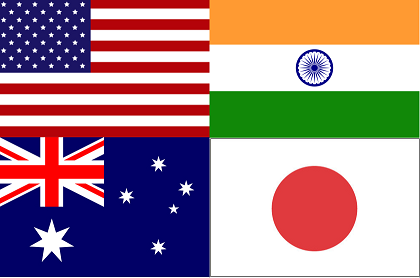 Courtesy: Shutterstock/Gateway House
Courtesy: Shutterstock/Gateway House
China’s escalating actions in the wake of the COVID-19 catastrophe is a calculated strategic diversion and risk. In the Indo-Pacific, tensions between China and the U.S., Australia, India and others are building momentum. As a geopolitical partnership, the relevance of the Quad is now proven. There are clear ways to empower it immediately, and make it a resilient grouping.
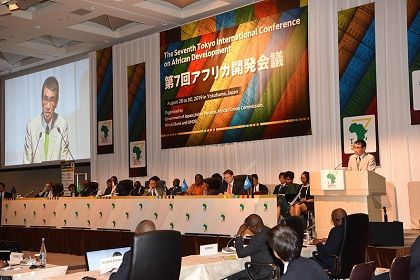 Courtesy: TICAD7/Flickr
Courtesy: TICAD7/Flickr
The Seventh Tokyo International Conference on African Development was a departure from earlier editions of it. Japan, which is changing tack as a competitor to China in Africa, held back from publicising the number of heads of state present to prevent any comparisons with other such forums and made no further commitments on Overseas Development Assistance. The accent, instead, was on increasing Japanese private sector engagement
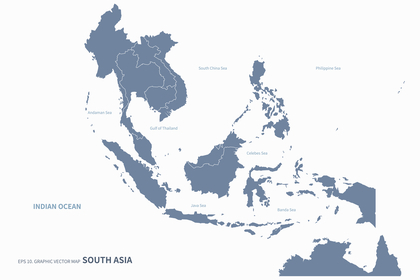 Courtesy: Shutterstock
Courtesy: Shutterstock
The foreign ministers of the Quad countries meet for the first time in New York today even as the Indo-Pacific has turned into a keenly contested geopolitical arena. Some countries are offering to play a mediatory role while other triangular equations are also undergoing change. An analysis of some of the relationships at work here
 Courtesy: ibctrain.com
Courtesy: ibctrain.com
The main objective of the Shanghai Cooperation Organisation’s (SCO) Energy Club, when Russia formed it, was to market its member states’ substantial oil and natural gas reserves. This map shows some of the important natural gas pipelines, originating from Russia and its neighbouring countries that are not members of the SCO. What can India do to secure supplies from these abundant but currently inaccessible natural gas reserves?
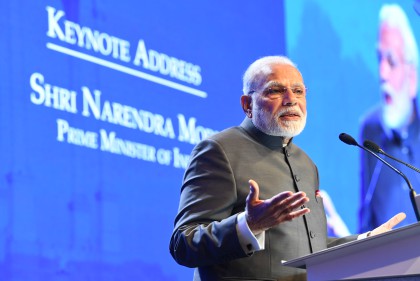 Courtesy: MEA Flickr
Courtesy: MEA Flickr
The key global powers are redefining their roles in the Indo-Pacific to promote national interest. China’s rise and increased activism in South Asia and the Indian Ocean region is an uncontested reality even as Asian countries worry about the new cold war in which the U.S. and China are locked. The Quadrilateral Dialogue has reemerged to prevent a unipolar Asia — these are some of the trends unfolding in this arena